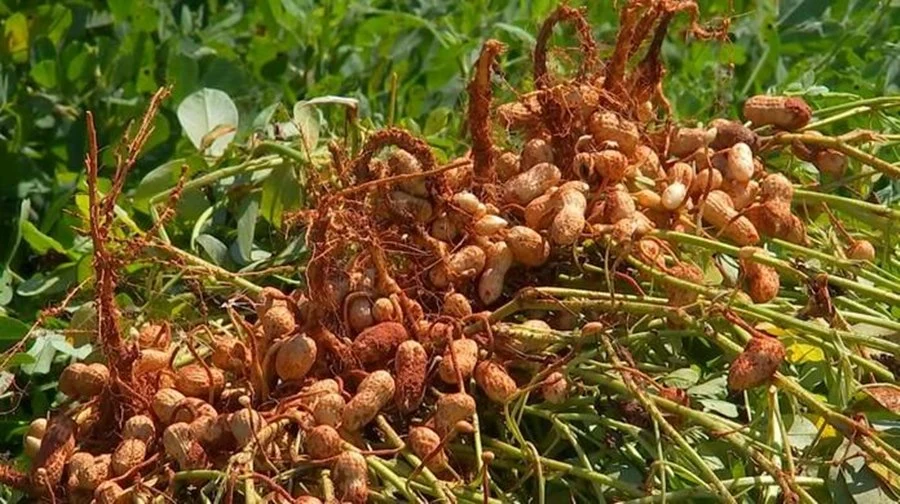Over the past decade, Brazil has dramatically transformed its peanut farming, transitioning from traditional methods to modern practices.
This shift largely stems from the adoption of certified seeds, driven by increasing export demands and a push for higher quality products.
The Farming Ministry Mapa imposed strict regulations for seed production, significantly altering farming practices.
Data from the São Paulo State Superintendence of Agriculture and Livestock (SFA-SP) indicates a shift toward higher-grade seeds that comply with Mapa’s standards.
Initially, in the 2015/16 season, there were only seven registered peanut seed producers covering 7,926.87 hectares.
By the 2023/24 season, this number had surged to 27 producers across 32,321.29 hectares, showcasing rapid sector growth.

Eduardo Gusmão, a tax auditor with the ministry, recently inspected a field in Queiroz, near Tupã, demonstrating a new peanut cultivar developed by Embrapa.
Alongside the Campinas Agronomic Institute (IAC) and Argentina’s El Carmen, Embrapa has been crucial in developing new peanut varieties.
The IAC’s cultivars made up 80% of São Paulo’s peanut crops in 2022, and Brazil now cultivates about 25 to 26 different peanut varieties.
Of the 27 certified seed producers listed by Mapa, 25 are in São Paulo, which accounts for 90% of the country’s peanut farming.
The Rise of Certified Peanut Farming in Brazil
Agronomist Guilherme Uitdewilligen noted that peanut farming acreage expanded from 160,000 to 180,000 hectares in 2015 to over 300,000 hectares currently.
This growth is buoyed by stable market prices, making peanuts a solid agricultural investment.
Certified seeds are now used in 65% to 70% of the cultivated area, enhancing crop quality and providing farmers with vital technical support.
This not only ensures a better harvest but also offers a safety net against crop failure risks.
While 70% of Brazil’s peanut production is exported, efforts are increasing to boost domestic consumption, which currently stands at only 1.1 kilograms per capita annually.
Boosting local consumption is seen as essential for reducing reliance on export markets and promoting a more sustainable future for Brazil’s peanut farmers.

